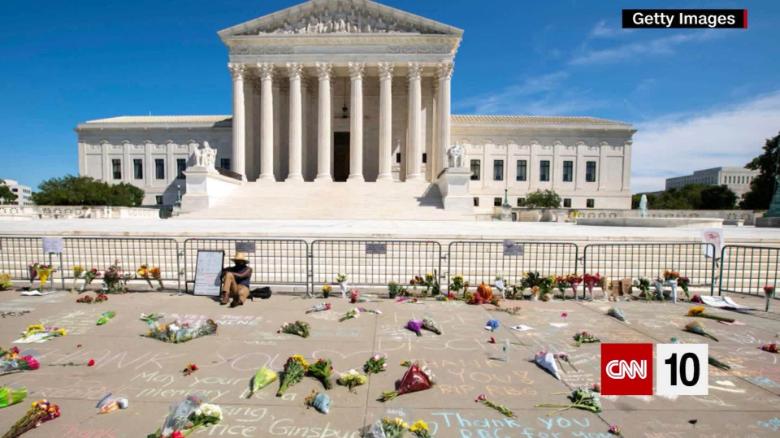Go to cnn.com/cnn10 for latest video
Monday, September 21, 2020
Last Friday, associate Justice Ruth Bader Ginsburg passed away at the age of 87, and many memorials appeared outside the Supreme Court over the weekend. Justice Ginsburg had been battling pancreatic cancer since 2009, and in the Supreme Court's announcement of her death, Chief Justice Roberts praised her as a historic jurist and cherished colleague. She had served since 1993 when she was nominated by President Clinton, and she was a strong proponent of women's rights. She was considered a liberal Justice, and her death brings about much political controversy. Justices serve for life, and although there are no requirements for a nominee, presidents have traditionally picked highly qualified, sitting judges. Once a judge is nominated, they are questioned by the Senate Judiciary Committee and voted on by the Senate for confirmation. Because this is an election year, Republicans will probably try to get a nominee confirmed before November when they could lose the Senate and/or White House, and the Democrats will try to delay a vote as long as possible. In Colorado, an extinct type of apple is being brought back. The Colorado Orange apple was a key part of orchards when people originally settled the state during its gold rush. The last tree was found in an orchard in 2017, but there were no DNA samples of the apple to confirm that. However, Colorado State University had some wax models that matched the apples from the tree. It is now being grafted and given to orchard farmers.


